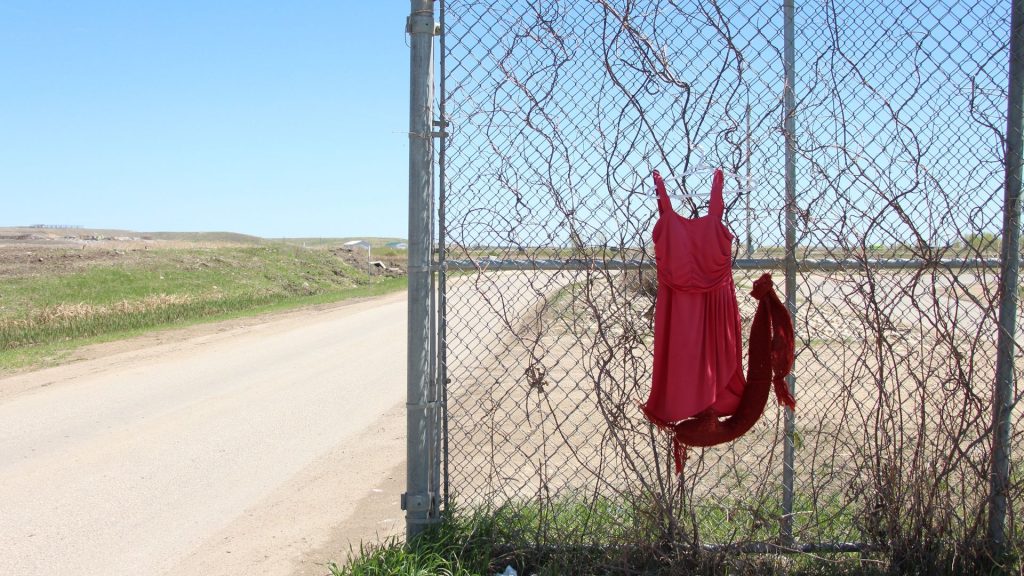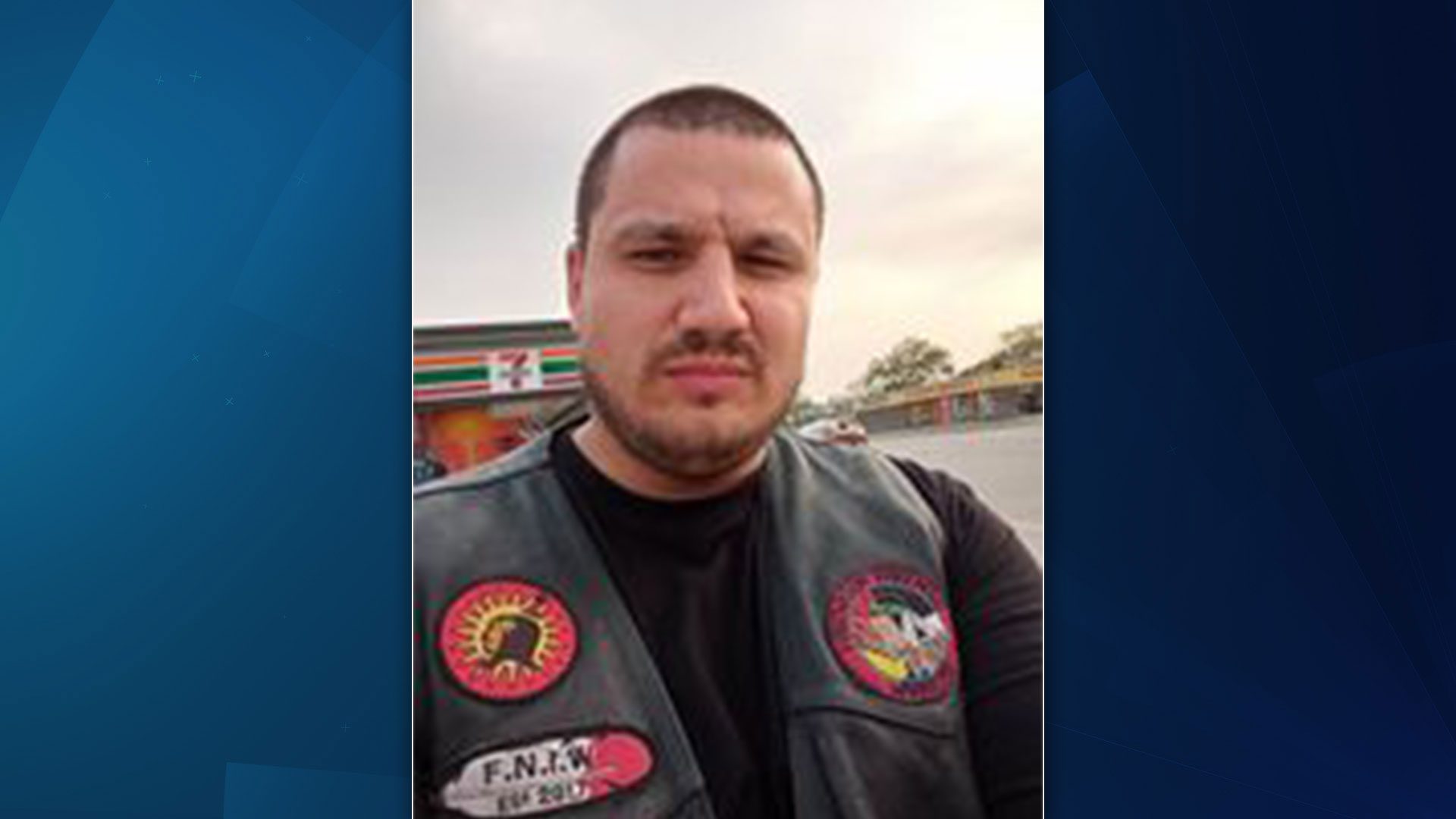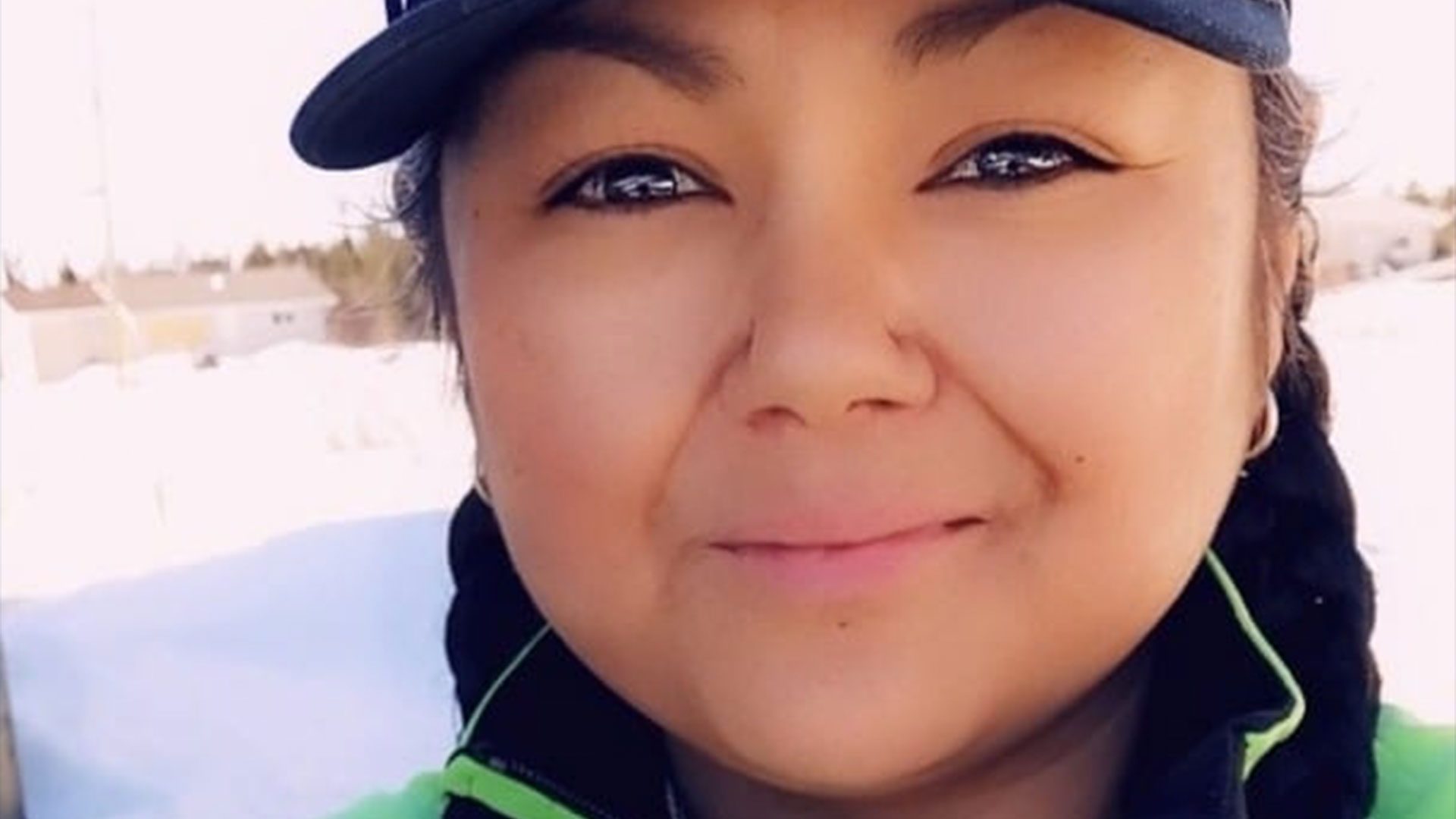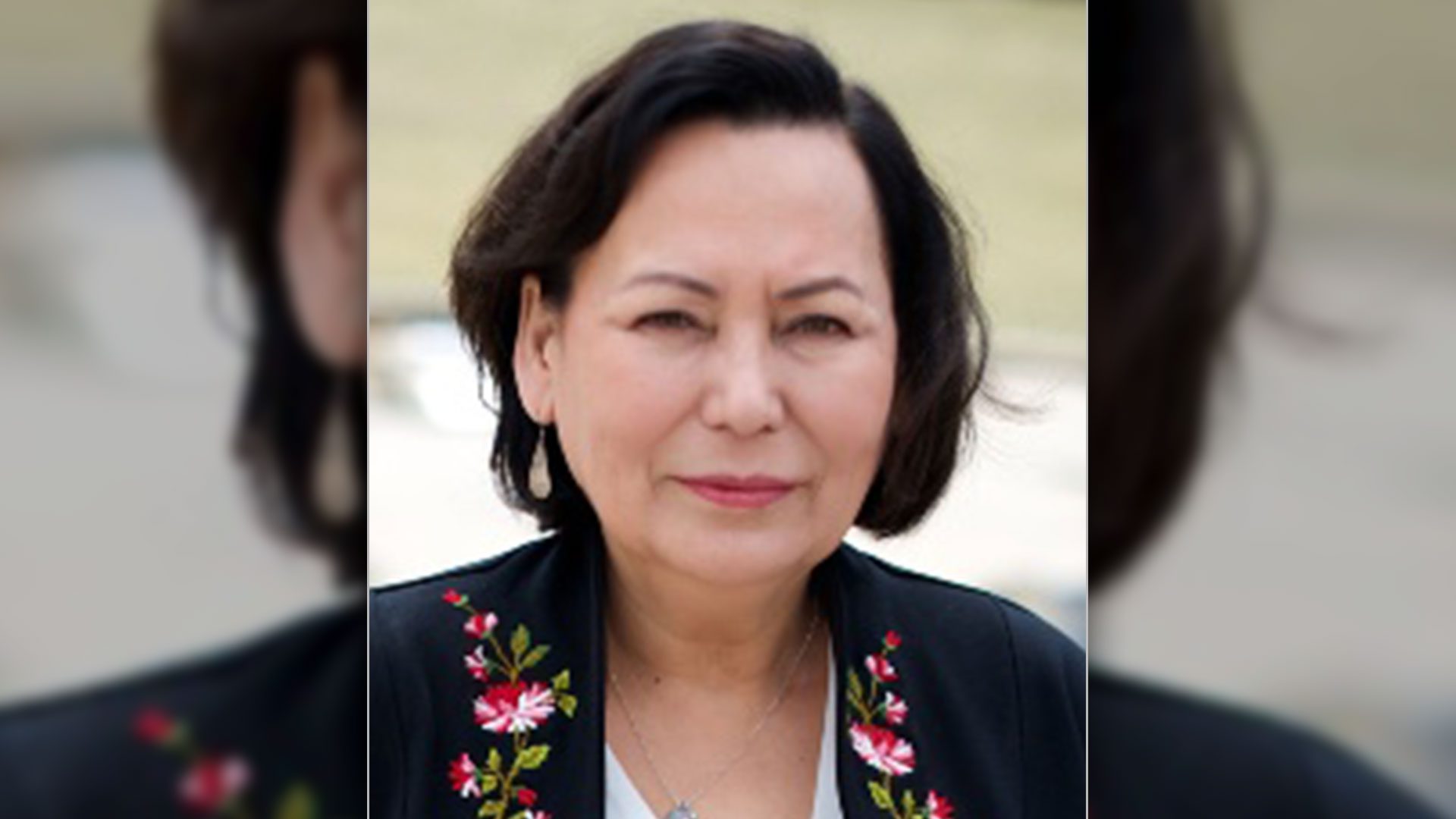
Red dresses have come to symbolize missing and murdered Indigenous women in Canada. Photo: Jesse Andrushko/APTN News
When Harley Dawes’ sister went missing in Winnipeg last September he was worried.
The 22-year-old woman from a First Nation in northern Manitoba was said to be badly injured after being assaulted by her boyfriend when news of her disappearance reached her family.
“I was scared she was going to be another statistic,” Dawes said from the Manitoba capital.
He had good reason to fear.
In its final report released June 3, 2019, the National Inquiry into Missing and Murdered Indigenous Women and Girls estimated 4,000 First Nations, Inuit and Métis women have disappeared in Canada over the past 30 years and predicted the true number would never be known.

More recently, APTN Investigates discovered Indigenous women were overrepresented as victims of crime in Winnipeg, making the Manitoba capital the epicentre for missing and murdered Indigenous women.
The investigative journalism program found that Indigenous women accounted for 65 per cent of homicides in Winnipeg between 2018 and 2022.
Last year alone, Investigates said Indigenous women accounted for nearly 20 percent of all homicides in the city while making up just six per cent of the population.
Indigenous women also accounted for every unsolved female homicide in the last five years, the program found.
“We should never grow numb to the horror,” said Winnipeg Mayor Scott Gillingham following a news conference to announce an infusion of federal cash to deter youth from gangs and guns.
“At its core, it comes down to a lack of respect for life and a lack of respect for women. And we just can’t accept that.”

Winnipeg has the highest rate of violent crime on the Prairies.
So far this year, 13 people are accused of committing 14 homicides in Winnipeg. Ten of the suspects are Indigenous men, one Indigenous woman and two 17-year-old Indigenous males.
The young suspects are why Gillingham said he told Prime Minister Justin Trudeau during a meeting in Winnipeg in April 12 that he is concerned about youth crime and where it leads.
“Women need to be respected,” Gillingham told APTN News in an interview. “Indigenous women need to be respected, their lives need to be valued. And we need to do all that we can to fight to that end.”
Dawes said posters with his sisters’ picture were circulated in Winnipeg asking for information on her whereabouts.
After hearing she might be in Regina, about 500 km west of Winnipeg, he filed a missing persons report with the Regina Police Service (RPS) and started an email conversation with an officer in the Missing Persons Unit there.
“It was a long winter,” Dawes told APTN of the agonizing wait for news.

But his frustration turned to exasperation in the spring upon learning Regina beat cops found his vulnerable sister and let her go without contacting him. Police then closed the file in May, he said.
“This was serious,” said Dawes, a member of the First Nations Indigenous Warriors Society that works to bring awareness to Indigenous issues. “We were so worried.
“I was at the point where I wanted proof of life.”
After questioning his contact in the Missing Persons Unit about how they knew the woman they found was his sister, Dawes said the officer became defensive and cut him off.
“I was mad. I was asking about how they knew it was her. Did they check identifying marks, like tattoos and scars?”
Dawes spoke to RPS from the Thompson office of the Missing and Murdered Women and Girls Liaison Unit at Manitoba Keewatinowi Okimakanak (MKO), a First Nations advocacy group, with a staff member on the line for support.
“I do hear that from families that they’re not being heard,” confirmed Heidi Spence, director of the MMIWG Liaison Unit.
“That they’re not being taken seriously and their concern for their loved ones isn’t being heard.”

Spence said the attitude is “discouraging” when families are dependent on police to find their family members.
In fact, criticism of how police handle missing-persons cases, particularly those involving Indigenous sex workers and drug addicts, was a major part of the 2012 inquiry into the Vancouver police investigation of serial killer Robert Pickton.
Similar testimony that missing person reports were dismissed by the RCMP made headlines during the National Inquiry into Missing and Murdered Indigenous Women and Girls.
“They find us when we’re dead,” said Sandra DeLaronde, director of the MMIWG2S Implementation Committee in Winnipeg, in an interview.
“But (they) don’t invest the time and money to find us when we’re alive.”
DeLaronde decried the lack of funding for family members who have to pay their own way to Winnipeg to search for missing relatives.
Creating such a fund was recommended by the MMIWG inquiry’s final report in 2019.
“They have to become their own detectives and investigators because they don’t trust the police to do the job,” DeLaronde noted.
State of emergency
The federal New Democratic Party called for a national state of emergency last month to address violence against Indigenous women and girls. Its Winnipeg Centre MP Leah Gazan, who is First Nations, tabled a motion on May 2 to create a Red Dress Alert similar to an Amber Alert to help address the crisis.
MKO statistics show Indigenous women are four times more likely than non-Indigenous women to be victims of violence.
The organization said Indigenous women make up 16 per cent of all female homicide victims and 11 per cent of missing women, while Indigenous people comprise only 4.3 per cent of the national population.
Still, Manitoba RCMP walk a fine line when it comes to searching for missing people, said Const. Julie Courchaine.
“These people are adults and they may not want to be found,” she said.
But that doesn’t stop others from wanting to find them.
Courchaine said the RCMP receives missing persons reports on a daily basis.
“Our missing are definitely a priority,” she added. “It’s definitely something we keep an eye on.”
The RPS, meanwhile, said it uses various ways to confirm the identity of a missing person.
“In this case, (Dawes’ sister) provided our officer with the correct birth date, full name and her appearance matched the photo on file,” said spokesperson Lindsey Hoemsen.
“When someone reported missing is an adult, we are unable to provide personal details to the family or anyone else due to privacy regulations. We can only share that we have located them and have been in contact.”
Reached out
After responding to questions from APTN, Dawes said the Missing Persons Unit reached out to him.
He said they offered to find his sister at a local shelter she frequented and put her on the phone.
“They seemed to be a 180 in their help now,” Dawes said on May 28.
The next day he contacted APTN again to say he received the call he’s been waiting for.
“My sister has been found alive,” he said. “I spoke to her last night on the police phone.
“Thank you so much. I’m making arrangements to head to Regina tomorrow to pick her up.”
With files by Brittany Guyot and Dennis Ward









